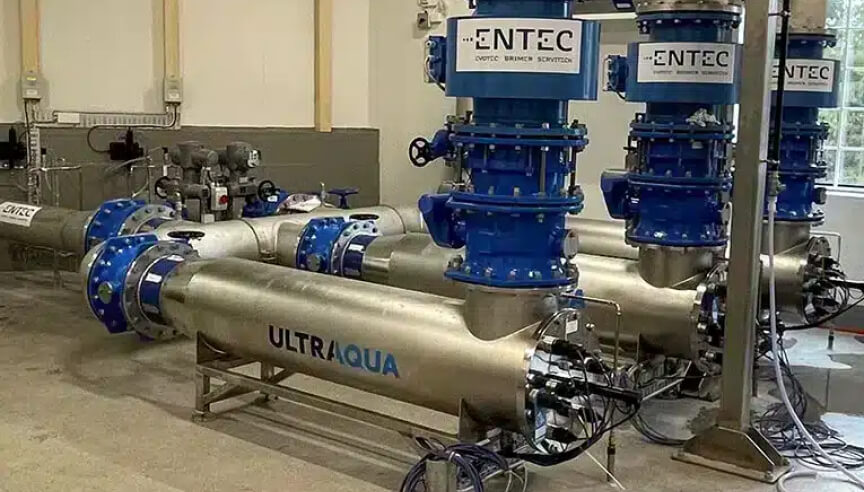UV Disinfection for Safe Drinking Water

Access to clean, safe drinking water is essential for public health and well-being. Traditional methods of water treatment, such as chlorination and filtration, have long been effective in removing contaminants and pathogens from drinking water supplies. However, concerns about the by-products of chemical disinfection and the emergence of resistant pathogens have prompted the exploration of alternative, more sustainable approaches. One such method gaining prominence is UV disinfection.
Harnessing UV Disinfection for Safe Drinking Water: A Modern Approach to Water Treatment
Understanding UV Disinfection
UV disinfection is a process that utilizes ultraviolet (UV) light to inactivate or destroy harmful microorganisms present in water. UV light, particularly UV-C with wavelengths between 200 and 280 nanometers, is highly effective at disrupting the DNA and RNA of bacteria, viruses, and protozoa, rendering them unable to replicate and causing them to become inactive.
Application in Drinking Water Treatment
The application of UV disinfection in drinking water treatment offers several advantages over traditional methods:
- Effective Pathogen Control: UV disinfection provides a robust barrier against a wide range of pathogens, including bacteria, viruses, and protozoa, without the use of chemicals. It is particularly effective against chlorine-resistant microorganisms like Cryptosporidium and Giardia, which can cause waterborne illnesses.
- Chemical-Free Treatment: Unlike chlorination, UV disinfection does not introduce chemical disinfectants or by-products into the water. This eliminates the formation of potentially harmful compounds such as trihalomethanes (THMs) and haloacetic acids (HAAs), which are associated with long-term health risks.
- Environmentally Friendly: UV disinfection is a sustainable and environmentally friendly method of water treatment. It does not produce harmful residues or contribute to the formation of disinfection by-products (DBPs), making it suitable for use in environmentally sensitive areas and protecting aquatic ecosystems.
- Quick and Efficient: UV disinfection provides rapid treatment with minimal contact time, allowing for continuous disinfection without the need for storage tanks or lengthy retention times. This results in improved operational efficiency and reduced energy consumption compared to other disinfection methods.
Implementing UV Disinfection Systems
Integrating UV disinfection into drinking water treatment systems requires careful planning and consideration:
- System Design: UV disinfection systems should be designed to meet the specific needs and challenges of the water treatment plant. Factors such as flow rate, water quality, and UV dose requirements must be taken into account to ensure effective disinfection.
- Monitoring and Maintenance: Regular monitoring of UV intensity, lamp performance, and water quality parameters is essential to ensure proper system operation and maintenance. UV sensors and automated controls can help optimize performance and ensure compliance with regulatory requirements.
- Validation and Compliance: UV disinfection systems must be properly validated and verified to ensure they meet regulatory standards for microbial inactivation. This may involve pilot testing, dose validation studies, and certification by regulatory authorities to demonstrate efficacy and compliance with drinking water regulations.
- Operator Training: Proper training and certification of operators are essential to ensure the safe and effective operation of UV disinfection systems. Operators should be familiar with system maintenance procedures, troubleshooting techniques, and safety protocols to minimize risks and ensure reliable performance.
Conclusion
UV disinfection offers a safe, effective, and sustainable solution for ensuring the microbiological safety of drinking water supplies. By harnessing the power of UV light to inactivate harmful pathogens, water treatment facilities can provide communities with clean, safe drinking water without the need for chemical disinfectants or by-products. As the demand for environmentally friendly water treatment solutions continues to grow, UV disinfection is poised to play an increasingly important role in safeguarding public health and protecting precious water resources for future generations.
